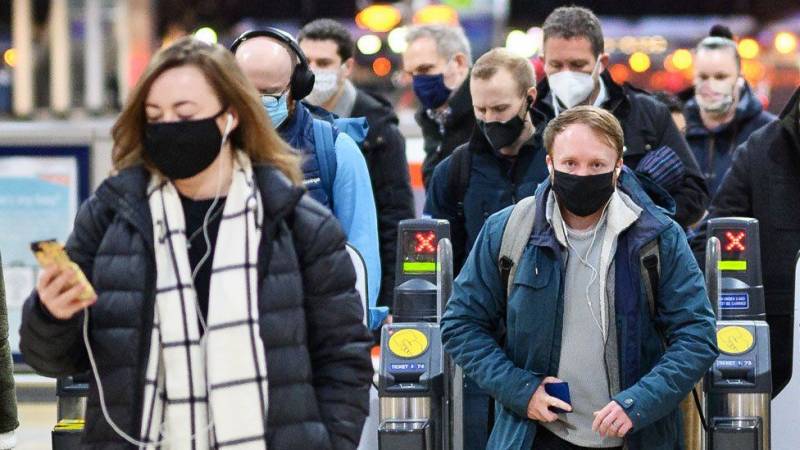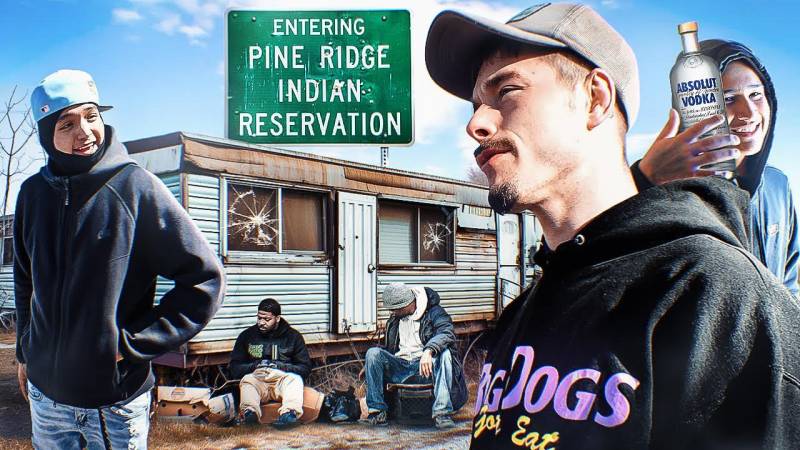Face coverings have become mandatory again on public transport and shops in England in an effort to slow the spread of the Omicron coronavirus variant.
People arriving in the UK from abroad will now also have to take a PCR test and self-isolate until they receive a negative result.
It comes after 14 cases of the new variant were detected in the UK.
Boris Johnson is expected to set out plans for the booster jab programme in England at a news conference later.
On Monday the government announced a major expansion of the booster jab rollout as part of efforts to help stop a potential wave of infections. They are to be offered to all over-18s in the UK, with children aged 12 to 15 invited for a second jab.
More local pharmacies could be used as part of the rollout and it is likely that there will be some prioritisation to ensure the vulnerable get their top-up shots first - as with the original scheme.
How do you detect Omicron?
Three more Omicron cases have been found in Scotland and Health Secretary Sajid Javid has said it is expected cases of the new variant will continue to rise.
Early evidence suggests Omicron - first found in southern Africa - has a higher re-infection risk. But scientists say it will take about three weeks before it is known how the variant impacts on the effectiveness of vaccines.
Mr Johnson said the new mask and testing measures would "buy us time in the face of this new variant".
Richard Walker, managing director of the Iceland grocery chain, told the BBC his company supported compulsory mask wearing but he would not be asking staff to police those who refused to do so.
Care Minister Gillian Keegan told BBC Breakfast that it was "down to individuals" to do the right thing, calling on the public to be "sensible", and said she understood Mr Walker's position.
While it is still unclear the impact the new variant could have she said people should continue with their Christmas plans but be "cautious".
Police in England say they will work "in partnership with relevant business owners and their staff" to ensure people comply with the new face coverings rules.
Assistant Chief Constable Owen Weatherill, of the National Police Chiefs' Council, said officers would engage with people not wearing face coverings and encourage them to do so.
As a last resort people can be fined £200, reduced to £100 if paid within 14 days.
The changes will be reviewed in three weeks' time and the health secretary told MPs they would be given a chance to vote on them.
Analysis box by Nick Triggle, health correspondent
Scientists are agreed accelerating the booster programme is key to combatting Omicron if the worst fears are realised.
That job though now lies in the hands of the NHS.
And the challenge that it faces is that the infrastructure that was so successful in delivering the jabs in the first half of the year has been scaled back.
Three-quarters of vaccinations were delivered by GP-led teams. But many of those GP and staff have now returned to their day jobs, focussing on the flu vaccine rollout and their patients.
Around 50 mass vaccination centres have also been shut down.
Restarting any of that will not be immediate so in the short-term the easiest solution is to extend the opening hours of the remaining big centres and providing more support to high street pharmacists who are also heavily involved.
Currently around 2.5m booster jabs are being given each week - at that rate it could take around three months to provide boosters to everyone.
Halving that would give the UK the best possible chance of combatting any Omicron wave.
line
Mr Javid said if it emerged that the variant was "no more dangerous than the Delta variant" then measures would not be kept in place "for a day longer than necessary".
Media caption,
Sajid Javid on Omicron numbers in the UK: "We expect cases to rise in coming days"
The new rules on face coverings bring England in line with Scotland, Wales and Northern Ireland, where they are already mandatory on public transport and for many indoor areas.
Newly-published guidance says they should be worn in locations including shops, shopping centres, posts offices, banks, hairdressers and food takeaways, as well as on public transport.
Although the change does not require people in England to wear coverings in pubs and restaurants, they are required in hospitality venues elsewhere in the UK in some circumstances.
BBC's Laura Foster explains how to wear your mask correctly and help stop coronavirus spreading
Labour's shadow health minister Dr Rosena Allin-Khan said the government should not have stopped asking the public in England to wear masks.
Another change, which has already come into effect, requires all contacts of suspected Omicron cases to self-isolate for 10 days, even if they are fully vaccinated.
Meanwhile, the first ministers of Scotland and Wales have called for the PCR test requirement to be changed so that everyone arriving in the UK would have to isolate for eight days.
The latest cases of the Omicron variant in England were detected in the Camden and Wandsworth areas of London. Like the other three cases in England, they have been linked to travel in southern Africa.
Nine cases of the Omicron variant of coronavirus have been identified in Scotland.
The average number of daily confirmed Covid cases in the UK began rising again in early November. A further 42,583 cases were reported on Monday.
Dr Jenny Harries, head of the UK Health Security Agency, told the BBC it was hoped a booster vaccine dose might "to some extent, counter the potential drop in vaccine effectiveness we might find with this variant".
She said people could also do their bit by reducing social contacts.
SOURCE : BBC




